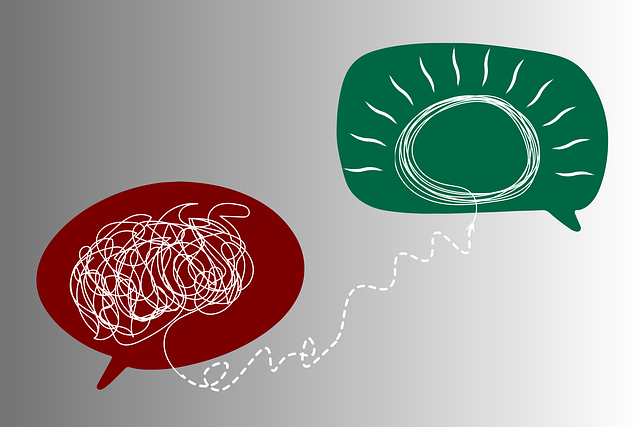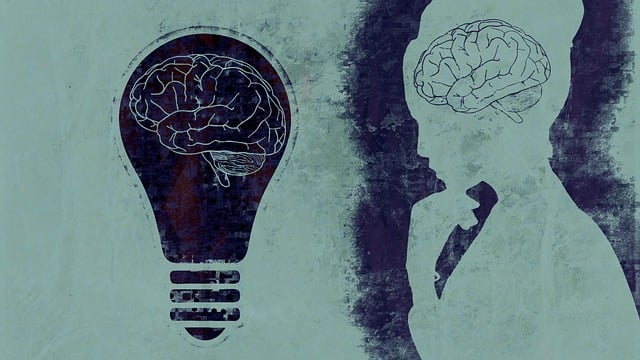Autism Spectrum Disorder (ASD) presents unique challenges in social interaction and communication, impacting daily life and relationships. Crisis Intervention Teams (CITs), comprising mental health professionals, offer specialized training to support individuals with ASD during crises. This training includes understanding ASD behaviors, sensory considerations, and tailored therapy for effective de-escalation. By fostering empathy and teaching strategies like mindfulness and conflict resolution, CITs enhance support, ensuring safety and access to trauma services for people on the autism spectrum. Implementing this comprehensive approach is a game-changer, revolutionizing crisis response and promoting long-term resilience in supporting individuals with ASD.
“In today’s diverse and complex support landscape, crisis intervention team (CIT) training programs play a pivotal role in enhancing care for individuals on the Autism Spectrum Disorder (ASD) spectrum. This article delves into the intricate relationship between CITs and ASD support, highlighting the significance of specialized training. We explore key components that constitute effective crisis intervention education, offering best practices for implementing ASD-specific teams. By understanding ASD’s unique challenges, we can revolutionize therapy and foster better outcomes.”
- Understanding Autism Spectrum Disorder (ASD) and Its Impact
- The Role of Crisis Intervention Teams in Supporting Individuals with ASD
- Key Components of Effective Crisis Intervention Training Programs
- Implementation and Best Practices for ASD-Specific Crisis Teams
Understanding Autism Spectrum Disorder (ASD) and Its Impact

Autism Spectrum Disorder (ASD) is a neurodevelopmental condition that affects social communication, interaction, and behavior. Understanding ASD involves recognizing its wide range of manifestations and the unique challenges it presents for both individuals with the disorder and those supporting them. The impact of ASD can be profound, affecting social relationships, emotional expression, and daily functioning. This is where specialized crisis intervention team training becomes invaluable.
Training programs equipped with knowledge about ASD can significantly enhance the effectiveness of support strategies. They provide essential tools for fostering self-awareness exercises that bridge communication gaps and promote understanding between individuals with ASD and their support networks. Moreover, these programs emphasize emotional healing processes tailored to address the often complex emotional landscape experienced by those on the spectrum. By integrating burnout prevention techniques, crisis intervention teams can ensure long-term resilience and sustain their support roles effectively.
The Role of Crisis Intervention Teams in Supporting Individuals with ASD

Crisis Intervention Teams (CITs) play a vital role in supporting individuals with Autism Spectrum Disorder (ASD), offering specialized care tailored to their unique needs. These teams, comprised of mental health professionals, are trained to navigate the complexities of ASD during crises, ensuring safe and effective interventions. CIT members receive comprehensive training in understanding autism behaviors, communication styles, and sensory considerations, enabling them to provide appropriate therapy for autism spectrum disorder. This approach not only boosts confidence for individuals with ASD but also enhances their ability to access trauma support services.
By integrating crisis intervention strategies, these teams can assess risks more accurately, especially when dealing with individuals who may exhibit challenging behaviors or have a history of sensory sensitivities. The training equips professionals with the skills to conduct thorough risk assessments for mental health professionals, ensuring the safety of both clients and practitioners during high-stress situations. This specialized care is transformative, fostering a supportive environment where folks on the autism spectrum can receive the help they need, when they need it most.
Key Components of Effective Crisis Intervention Training Programs

Effective crisis intervention team training programs are multifaceted and tailored to equip participants with a comprehensive skill set for handling various crises. A key component is therapy for Autism Spectrum Disorder (ASD), as it enhances understanding of unique communication styles and behaviors often present in individuals on the spectrum during stressful situations. By integrating self-awareness exercises, teams learn to recognize triggers and adapt their responses accordingly, fostering an environment that promotes de-escalation and support.
Additionally, conflict resolution techniques are essential tools within these programs. Training should emphasize strategies for diffusing tensions, encouraging open dialogue, and facilitating mutually agreeable solutions. Equally vital is focusing on inner strength development, teaching participants to recognize their own resilience and emotional coping mechanisms. This not only enhances their ability to manage crises but also strengthens the overall team dynamics, ensuring a cohesive and effective response.
Implementation and Best Practices for ASD-Specific Crisis Teams

Implementing crisis intervention team training specifically tailored for individuals with Autism Spectrum Disorder (ASD) is a game-changer in providing effective support. These teams are designed to offer prompt and sensitive assistance during crises, ensuring that unique challenges faced by those on the autism spectrum are addressed. Best practices emphasize the importance of comprehensive training that incorporates both theoretical knowledge and practical skills.
The curriculum should focus on fostering empathy and understanding of ASD-related behaviors. This includes teaching team members positive thinking strategies to manage emotions and promote calm during high-stress situations. By integrating evidence-based techniques for mood management, such as mindfulness and structured de-escalation protocols, crisis teams can effectively support individuals with ASD in navigating their unique emotional landscapes. Empathy building is a cornerstone of these programs, encouraging professionals to view crises through the lens of an autistic individual’s perspective, fostering more inclusive and supportive interventions.
Crisis intervention team training programs play a pivotal role in enhancing support for individuals with Autism Spectrum Disorder (ASD) by equipping teams with essential skills to manage crises effectively. By understanding the unique challenges of ASD and implementing tailored training, these programs foster inclusive environments that promote safe and positive outcomes. Effective crisis intervention not only improves quality of life but also advocates for better access to therapy for autism spectrum disorder, ultimately enriching the lives of those affected.











